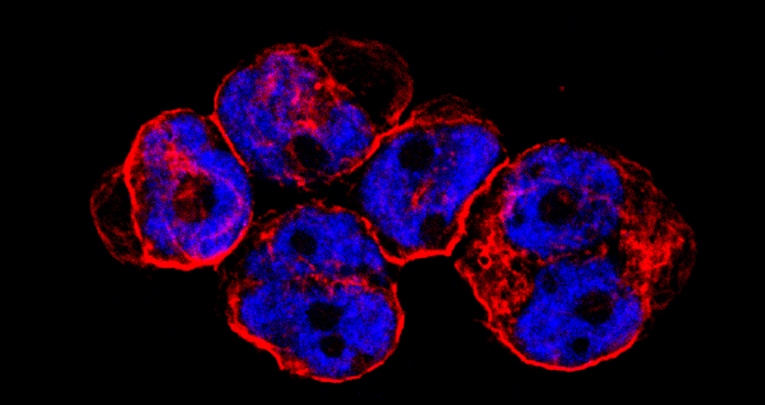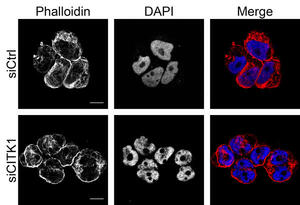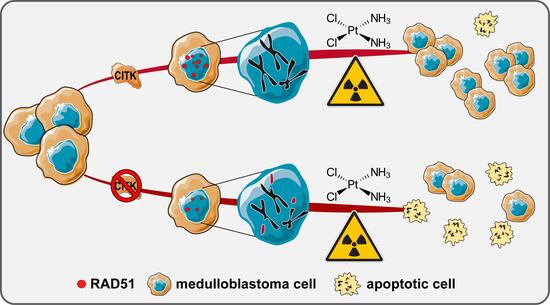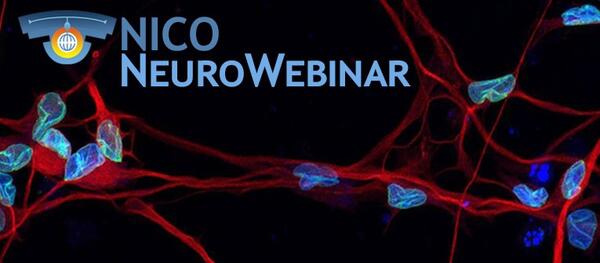
Cancers
, 26 February 2020
CITK loss inhibits growth of Group 3 and 4 medulloblastoma cells and sensitizes them to DNA-damaging agents.
Gianmarco Pallavicini 1,2,3 *, Giorgia Iegiani 1,2,3 , Gaia Elena Berto 1,2,3 , Elisa Calamia 4 , Edoardo Trevisiol 4 , Andrea Veltri 4 , Simona Allis 5 and Ferdinando Di Cunto 1,2,3 *
Background: Medulloblastoma (MB) is the most common malignant brain tumor in children and it is classified into four biological subgroups: WNT, Sonic Hedgehog (SHH), Group 3 and Group 4. The current treatment is surgery, followed by irradiation and chemotherapy. Unfortunately, these therapies are partially effective. Citron kinase protein (CITK) has been proposed as a promising target for SHH MB, whose inactivation leads to DNA damage and apoptosis.
Methods: D283 and D341 cell lines (Group 3/Group 4 MB) weresilenced with establishedsiRNAsequencesagainst CITK to assess the directeffects of itsloss. Next, D283, D341, ONS-76 and DAOY cellsweretreated with ionizingradiation (IR) or cisplatin in combination with CITK knockdown.
Representative image of D341 processed for immunofluorescence 72 hours after transfection with nontargeting or CITK-specific siRNA and stained with DAPI and anti-Phalloidin antibody
Results: CITK depletionimpairedproliferation and inducedcytokinesisfailure and apoptosis of G3/G4 MB cell lines. Furthermore, CITK knockdown produced an accumulation of DNA damage, with reduced RAD51 nuclearlevels. Association of IR or cisplatin with CITK depletionstronglyimpaired the growthpotential of alltested MB cells.
Conclusions: Theseresults indicate that CITK inactivationcouldprevent the expansion of G3/G4 MB and increasetheirsensitivity to DNA-damaging agents, by impairinghomologousrecombination. Wesuggestthat CITK inhibitioncould be broadlyassociated with IR and adjuvant therapy in MB treatment.









